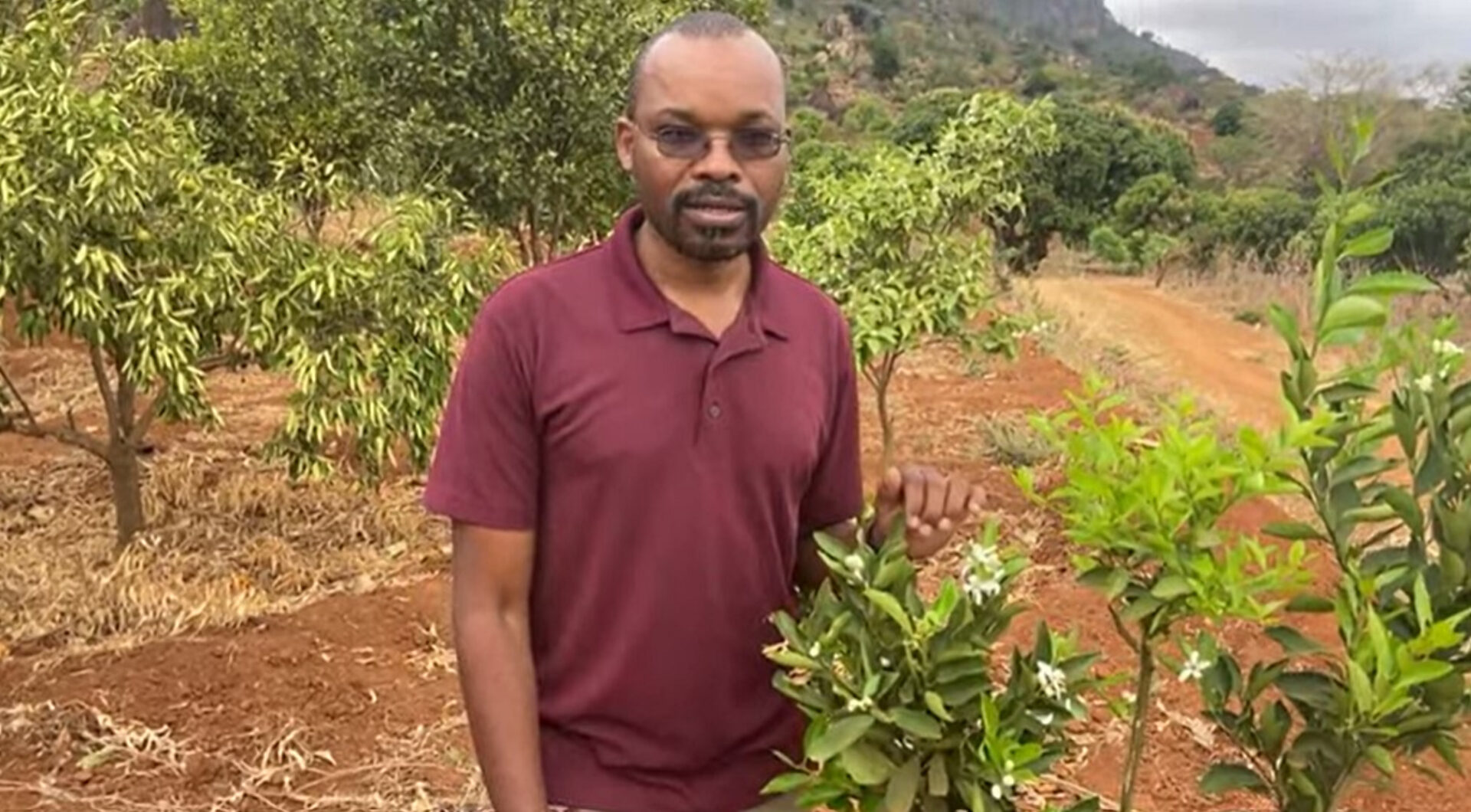Dr. Dickson Wambua is a Kenyan living in Atlanta but hails from Kalamba in Makueni County. He prefers to manage his pixie farm in Kenya from afar by entrusting the day-to-day operations to his farm manager while he oversees things remotely from Atlanta.
He works as a scientist conducting research focused on the impact of pesticides on human health in the state of Georgia.
On his Makueni land, he has cultivated pixies, mangoes, and pawpaws. The pixies are between 4 to 5 years old, comprising both perennial and seasonal varieties.
As a scientist, Wambua has always prioritized finding the correct formulas to improve citrus propagation and increase yields.
“The saying you can remove a boy from the village, but you can never remove the village from the boy. That defines me. Inasmuch as I’ve been in the US for quite a long time, I’m always connected to what’s going on in my farm in Kenya,” he said.
All of Wambua’s pixie mandarin trees begin as lemon seeds. He first carefully selects a suitable batch with desirable traits like disease resistance and high fruit quality.
Afterwards, he prepares the seedbed and cultivates them in an environment protected from harmful weather agents and animals.
After germination which occurs approximately 2 months later, he mixes leaf compost, soil and manure to pot the lemon seedlings. The quality seedlings are ready for transplanting into the soil 5 months later.
Approximately, an acre of land has 63m x 63m. With the rows and columns being 4 metres apart, Wambua can comfortably fit in 15 rows and columns. This translates to 225 plants in an acre. The holes have to be a minimum of 2ft x 2ft x 2ft.
“I see people fitting 300 plants. It’s possible, but based on what I’ve seen, after 5 years the farm gets a little bit too congested.”
At 18 months old, the lemon seedlings reach maturity and become suitable for grafting with a branch from a pixie mandarin tree.
This process entails choosing a productive branch from a mature pixie tree, cutting a section of it, and grafting it onto the lemon seedling.
“We have left that branch still intact at the top. So once that is done and our grafted scion is growing, we go ahead and chop the top lemon stalk off.”
“The plant will now start shooting with the pixie graft…we want the maximum amount of plant hormones going into the scion,” he explained.
After three years, Wambua can expect the grafted pixie tree on the lemon root stalk to yield fruits similar to those of the original pixie mandarin tree.
Wambua provides grafting services to clients who reach out to him. Previously, he’s grafted a pixie mandarin onto lemon trees for a client from Bungoma but currently resides in the United States.
When the plants begin to shoot, farmers must consider several key factors including farm cleanliness, the method of manure application, and ensuring the appropriate pesticides are used to prevent diseases.
Forcing flowering by maintaining a consistent watering and manure application schedule can encourage the grafted pixie mandarin tree to produce off-season fruits, which often fetch higher prices in the market.
Peter Mwaka: Pixie farmer making more money than his combined 37-year salary
Wambua approximates that the cost of planting 1 acre of these types of pixie mandarins will range between Sh. 40,000 and Sh. 50,000.
The returns from the harvest, which start after three years, may start at Sh. 180,000 and increase up to Sh. 1.44 million after five years (assuming a farmgate price of Sh. 80 per pixie fruit).
The highest yield he’s ever attained is 384 kgs from a single pixie mandarin tree.
“I can tell you for sure that from year 1 to year 3, there isn’t much that you’re getting from there. But from year 4 onwards, you are assured of getting good yields if you’ve been taking care of your farm,” Dr. Wambua continued.
“I’ve seen anywhere from Sh. 1 million to Sh. 2 million per season, that is, at farmgate prices of Sh. 80. This is going to vary, nobody will guarantee you anything. It’s up to you and how you manage your farm.”
Dr. Wambua owns a farm in the US where he has grown peaches, tomatoes, onions, cowpeas (kunde), cherry tomatoes, blueberries, papayas, and Katumani maize.









